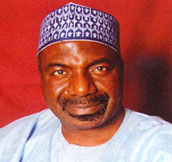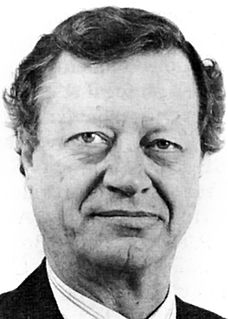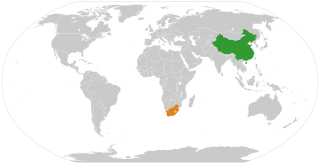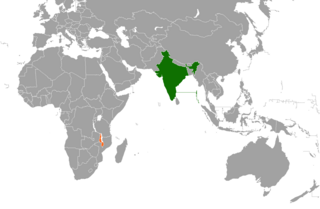
Mozambique, officially the Republic of Mozambique, is a country located in Southeastern Africa bordered by the Indian Ocean to the east, Tanzania to the north, Malawi and Zambia to the northwest, Zimbabwe to the west, and Eswatini (Swaziland) and South Africa to the southwest. The sovereign state is separated from the Comoros, Mayotte and Madagascar by the Mozambique Channel to the east. The capital and largest city of Mozambique is Maputo.

Eswatini, officially the Kingdom of Eswatini, sometimes written in English as eSwatini, and formerly and still commonly known in English as Swaziland, is a landlocked country in Southern Africa. It is bordered by Mozambique to its northeast and South Africa to its north, west, and south. At no more than 200 kilometres (120 mi) north to south and 130 kilometres (81 mi) east to west, Eswatini is one of the smallest countries in Africa; despite this, its climate and topography are diverse, ranging from a cool and mountainous highveld to a hot and dry lowveld.

Hastings Kamuzu Banda was the Prime Minister and later President of Malawi from 1964–1994. In 1966, the country became a republic and he became president. His rule has been characterized as a "highly repressive autocracy."

Joaquim Alberto Chissano is a politician who served as the second President of Mozambique, from 1986 to 2005. He is credited with transforming the war-torn country of Mozambique into one of the most successful African democracies. After his presidency, Chissano became an elder statesman, envoy and diplomat for both his home country and the United Nations. Chissano also served as Chairperson of the African Union from 2003 to 2004.

Hage Gottfried Geingob is the third and current president of Namibia, in office since 21 March 2015. Geingob was the first Prime Minister of Namibia from 21 March 1990 to 28 August 2002, and served as Prime Minister again from 4 December 2012 to 21 March 2015. Between 2008 and 2012 Geingob served as Minister of Trade and Industry. He is also the current president of the ruling SWAPO Party since his election to the position in November 2017.
The State Security Council (SSC) was formed in South Africa in 1972 to advise the government on the country's national policy and strategy concerning security, its implementation and determining security priorities. Its role changed through the prime ministerships of John Vorster and PW Botha, being little used during the formers and during the latter's, controlling all aspects of South African public's lives by becoming the Cabinet. During those years he would implement a Total National Strategy, Total Counter-revolutionary Strategy and finally in the mid-eighties, established the National Security Management System (NSMS). After FW de Klerk's rise to the role of State President, the Cabinet would eventually regain control of the management of the country. After the 1994 elections a committee called National Intelligence Co-ordinating Committee was formed to advise the South African president on security and intelligence as well as its implementation.

Dr. Mukhisa Kituyi is a Kenyan politician and 2022 presidential candidate who served as Secretary-General of the United Nations Conference on Trade and Development, UNCTAD from September 2013-February 2021 when he stepped down for his presidential ambitions, Immediately prior, Kituyi was Chief Executive of the Kenya Institute of Governance, based in Nairobi. He served as Kenya's Minister of Trade and Industry from 2002 to 2007.

Isaiah Chawai Balat was a Nigerian politician and businessman from southern Kaduna State. He was the Senator of the Federal Republic of Nigeria representing for Kaduna South from May 2003 to May 2007 and, a member of the People's Democratic Party. Prior to his election to the Senate, he served as the Minister of State for Works and Housing in the cabinet of President Olusegun Obasanjo form 1999 to 2000. In May 2010, Balat was appointed the Special Advisor to the President on Special Duties where he served until his demise in 2014.

Derek Lyle Keys was a South African politician who served as Minister of Finance from 1992 to September 1994, in the cabinets of F. W. de Klerk and Nelson Mandela.

Lindiwe Nonceba Sisulu is a South African politician, member of parliament since 1994, serving as Minister of Human Settlements, Water & Sanitation since May 2019 and member of the National Executive Committee of the African National Congress. She served before as Minister of Housing, Minister of Defence and Military Veterans, and was the Minister of Public Service and Administration from 2012 to 2014.
Foreign relations of South Africa during apartheid refers to the foreign relations of South Africa between 1948 and the early 1990s. South Africa introduced apartheid in 1948, as a systematic extension of pre-existing racial discrimination laws. Initially the regime implemented an offensive foreign policy trying to consolidate South African hegemony over Southern Africa. These attempts had clearly failed by the late 1970s. As a result of its racism, occupation of Namibia and foreign interventionism in Angola, the country became increasingly isolated internationally.

Abdou Kolley is a Gambian economist and politician who was Gambian Minister of Finance and Economic Affairs. He has held several roles in the Cabinet of the Gambia, having previously served as Minister of Finance and Economic Affairs and Minister of Trade, Industry, Regional Integration and Employment several times, as well as Minister of Fisheries and Water Resources.

Ebrahim Patel is a South African cabinet minister, who holds the position of Minister of Trade, Industry and Competition. He previously served as Minister of Economic Development from 2009 to 2019.

Yashpal Tandon is a Ugandan policymaker, political activist, professor, author and public intellectual. He has lectured extensively in the areas of International Relations and Political economy. He was deeply involved in the struggle against the dictatorship of Idi Amin in 1970's Uganda and has spent time in exile. He is the author and editor of numerous books and articles and has served on the editorial boards of many journals.
A de facto embassy is an office or organisation that serves de facto as an embassy in the absence of normal or official diplomatic relations among countries, usually to represent nations which lack full diplomatic recognition, regions or dependencies of countries, or territories over which sovereignty is disputed. In some cases, diplomatic immunity and extraterritoriality may be granted.

People's Republic of China – South Africa relations refer to the current and historical relationship between the People's Republic of China (PRC) and the Republic of South Africa.

Lesotho–Russia relations are the bilateral relations between Russia and Lesotho.

Saman Kelegama was a Sri Lankan economist, author and the executive director of the Institute of Policy Studies (IPS).

Lindiwe Daphney Zulu is South Africa's Minister of Social Development.

India–Malawi relations refers to the international relations that exist between India and Malawi.

















